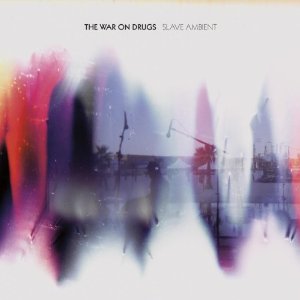In recent years, it has become something of a tradition whenever my parents come to visit for me and my dad to go out for a drive so that I can crank the stereo up loud and expose him to some new music that I think he might like. The stuff I play for him is always carefully chosen based on the tastes he developed as a teenager in the 60s and has stuck doggedly with ever since.
Last time, for example, we rocked the Tame Impala album – which we both agreed sounded like a modern update of Cream’s psychedelic pop – and some Fleet Foxes, which – as I suspected – reminded him of CSNY. Most times he likes what he hears, and I’ll burn him a copy to take home; whether he ever listens to it again is up to him, but it’s a pleasant way to spend a Sunday morning, giving my wife and my mother a chance to bond over their husbands’ many faults while me and my old man spend some quality father-son time.
I already know what we’ll be listening to next time: Slave Ambient, the sophomore full-length from Philadelphia’s The War On Drugs, ticks so many of our shared boxes that it seems custom-built for our drives. Front-man Adam Granduciel’s vocals are pitched mid-way between Neil Young’s reedy croak and Dylan’s nasal whine, and the shimmering, jangling wall of sound that he and his band build up around them here recalls not only those legendary artists but also – at various points – many of the major touchstones of classic American guitar music, from John Fahey and the Velvet Underground, through CCR, Tom Petty, Springsteen and Bob Seger to Mercury Rev and Elliot Smith.
The album’s combination of finger-picked folk, dusty country blues, cosmic psychedelia and blue-collar rock is the perfect soundtrack to any road-trip but, more than that, it’s a perfect example of a whole that is greater than the sum of its parts; a record so accomplished that it already feels timeless.
Of course, the easy familiarity that Slave Ambient exudes might be down to more than just its melting pot of well-worn influences. Anyone that has heard another of 2011’s best albums, Kurt Vile’s Smoke Ring For My Halo, will doubtless recognise certain similarities between the two long-players; not surprisingly, perhaps, given that the original War On Drugs line-up was based around Granduciel and a pre-solo career Vile, and that Granduciel continues to this day to play in Vile’s backing band, The Violators. But whereas Vile seems to have narrowed the field somewhat for his latest, Granduciel – along with multi-instrumentalists Dave Hartley and Robbie Bennett and drummer Mike Zanghi – have moved in the opposite direction and expanded their palette; using synths and samples, loops and layers, Granduciel has painstakingly constructed a dense, intricate sound-world for his songs to inhabit. There’s an oft-repeated saying about less being more which one would imagine would sit well with the band’s punk rock ethos, but Slave Ambient puts forward a pretty convincing argument for bigger being better.
It’s not all about classic rock homages, though; there are also some pretty big nods to classic pop. Stand-outs ‘Come To The City’ and ‘It’s Your Destiny’ both draw from the same 80s mainstream influences as Destroyer’s recent Kaputt, glistening keyboard motifs adding a polished FM radio sheen to some rather lovely melodies. The band also run a nice little side-line channelling the spirit of 70s Krautrock groups like Neu! and Cluster, and as on their debut (2008’s criminally underrated Wagonwheel Blues) the most thrilling highlights here are tracks like ‘Your Love Is Calling My Name’ and ‘Baby Missiles’, where fist-pumping Boss-sized anthems morph into lengthy, droning motorik jams. With all these styles rubbing up against each other, you would expect a spark or two; what is astonishing is that Slave Ambient burns so brightly from start to finish. Whilst it may lack the game-changing originality of other big 2011 releases, the record spans half a century of musical history more effectively than any other in recent memory. And although this in itself does not make it a ‘classic’, this is a near-flawless rock album, and certainly one of the best you’ll hear all year.


